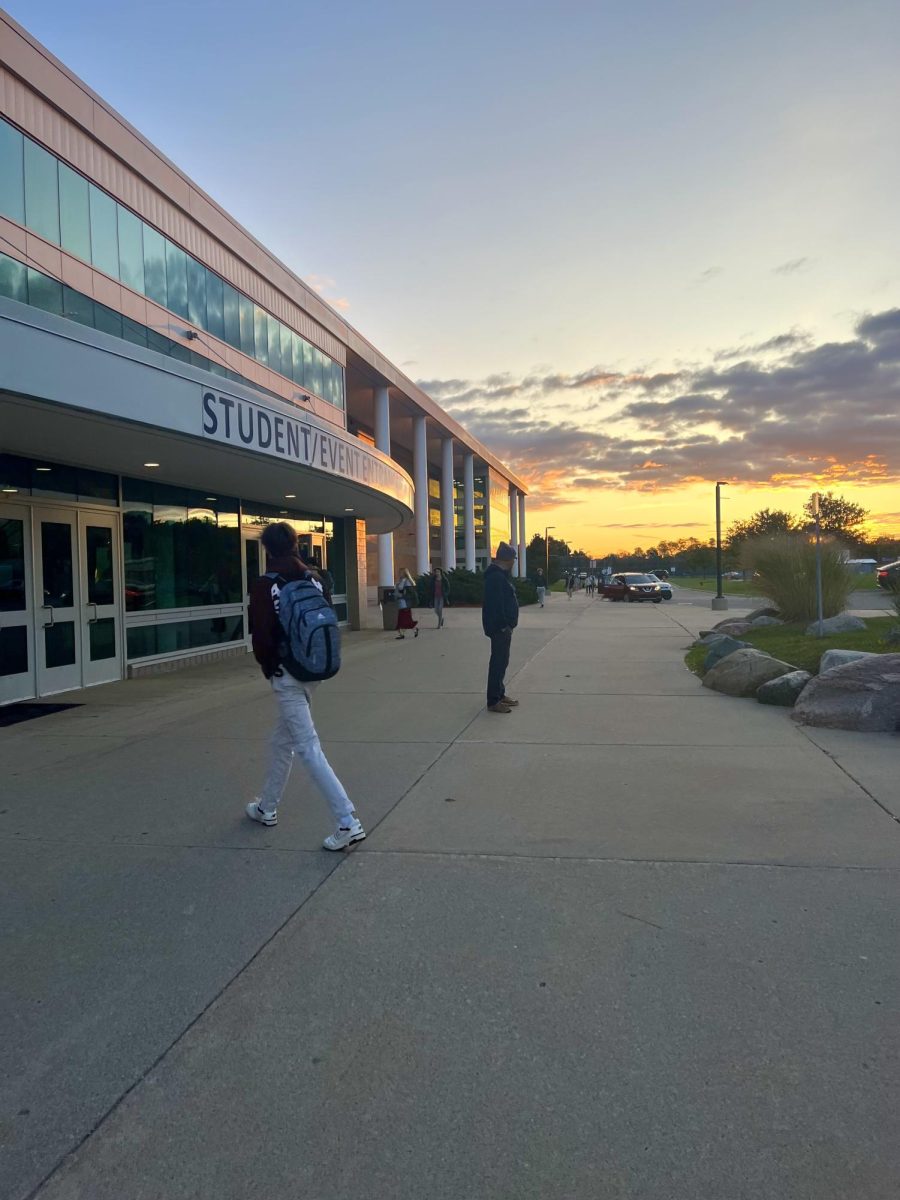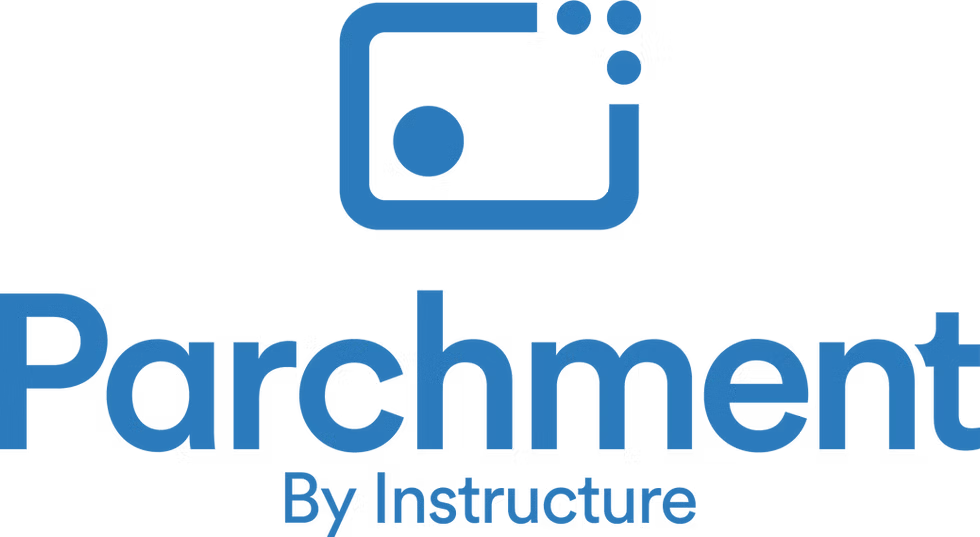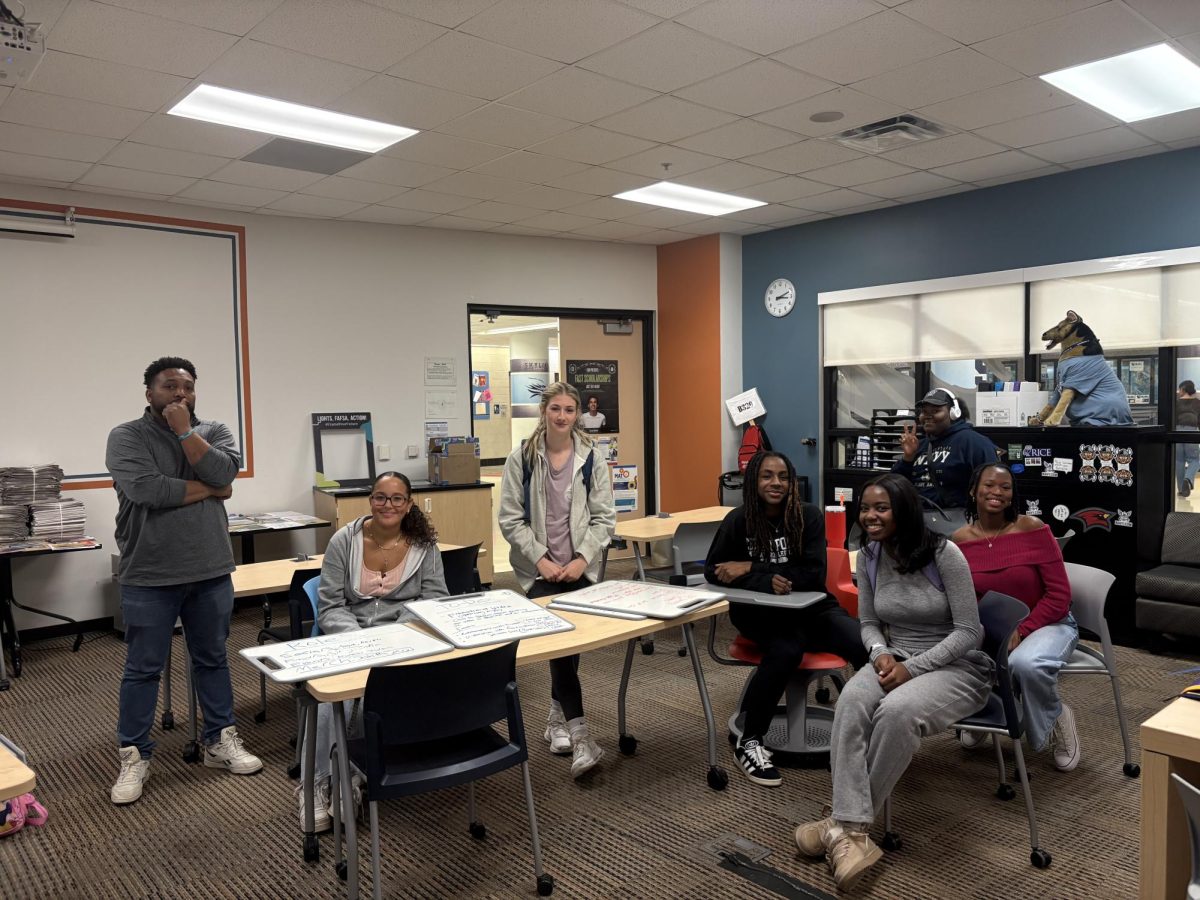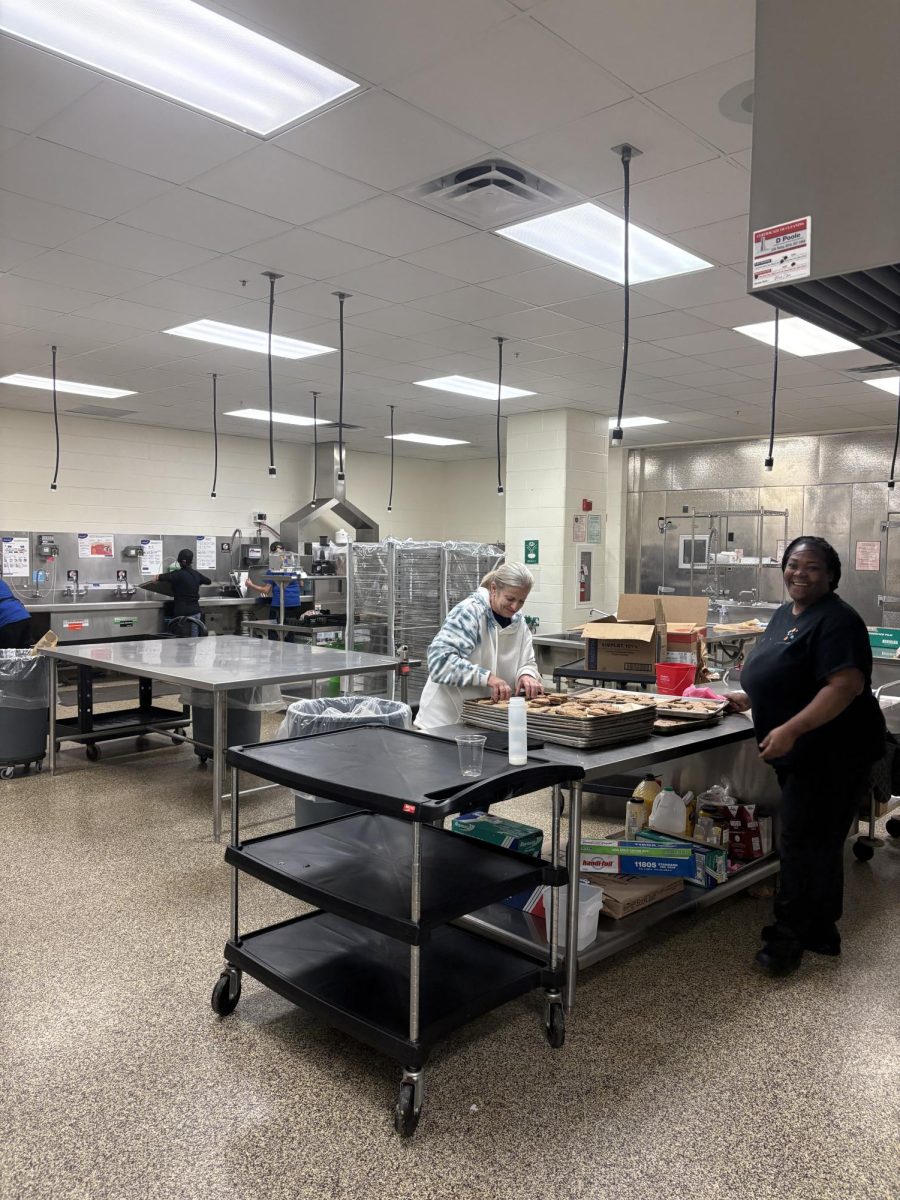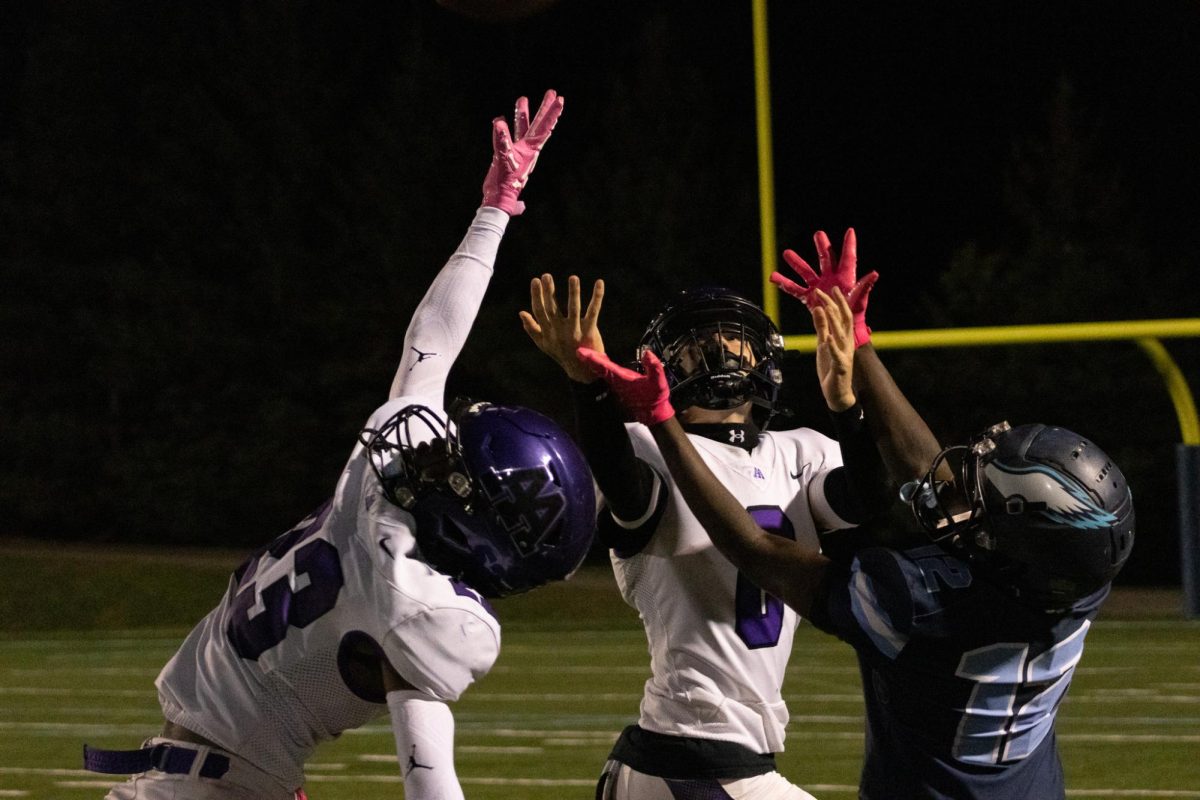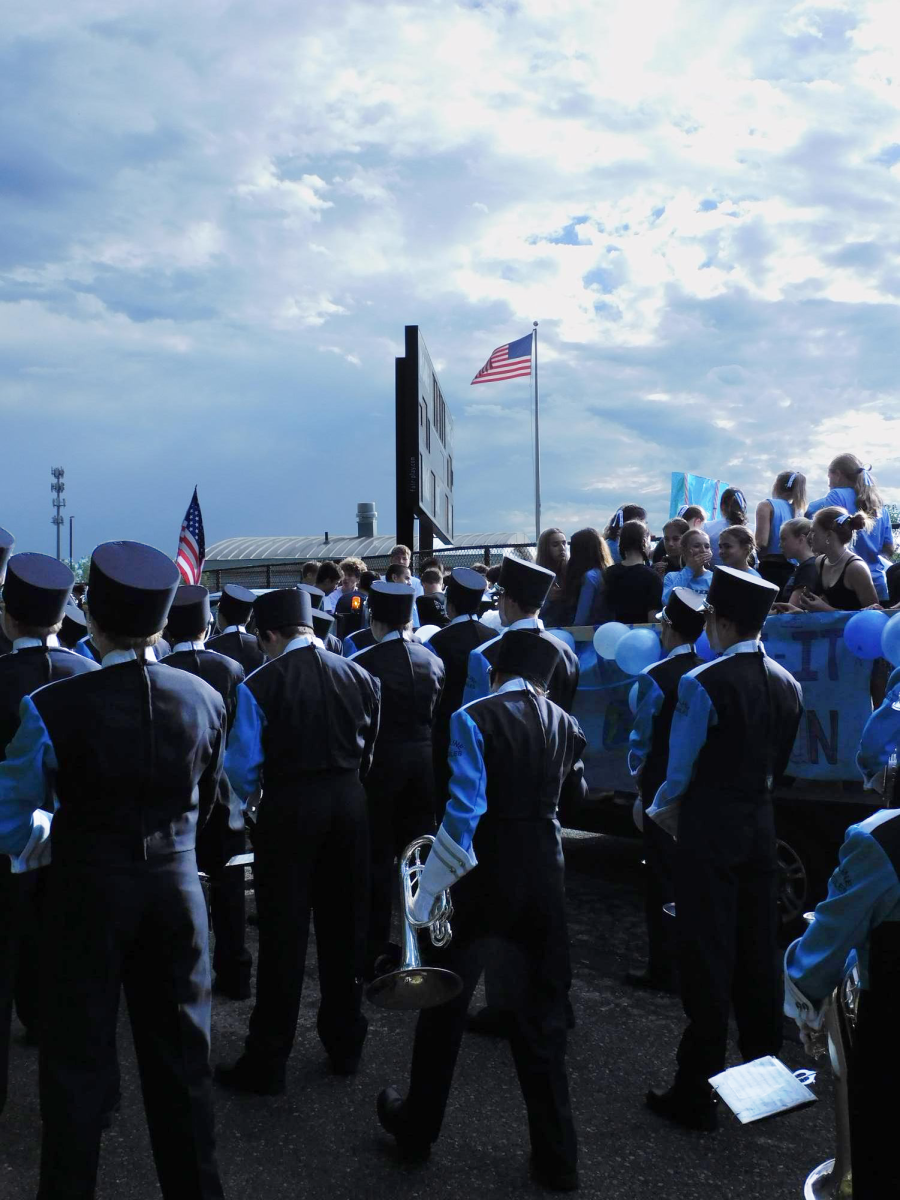The American Academy of Pediatrics recommends schools start at 8:30 a.m. or later to allow time for sufficient sleep. Schools that start at 8:30 or later have found that up to 60% of their students get at least 8 hours of sleep a night.
Insufficient sleep can cause a myriad of issues, including health problems like metabolic dysfunction, and safety concerns like an increased rate of car crashes due to drowsy driving. Non-consistent sleep can also lead to mental health issues (increased risk of depression, anxiety, and suicidal ideations).
In school, a sleep-deprived student may have impaired memory, attention span, and will likely perform worse academically. Benefits of a later start time include higher attendance, less tardiness, better academic performance, and higher graduation rates.
Despite findings highlighting the benefits of a later start time, Skyline’s falls at the nationwide average of 8:00 a.m. According to Michigan.gov, Michigan students are required to a minimum of 1,098 hours of instruction in a school year.
Skyline students have mixed feelings about how schools choose to fit in these required hours. “I feel like maybe we should [start] around 9 or something like that,” says Maya Kama (‘24). “I do think it would be really helpful if it was like different lengths of the day throughout the week so you could have a day to look forward to.”
Some students have the luxury of a later start due to online classes. “I did get to choose [my start time] due to my online classes,” says Leela Aiyagari (‘24). “My school start time is 10:30 in the morning and that seems to work really well for me….Even if I’m awake at the same time, I’m just more prepared to think at 10:30 in the morning than I am at 8….My thinking does not start until at least 2nd hour.”
Grace Yao (‘24) agrees. “eight in the morning is a bit early for me to be doing full-on calculus.”
With after-school activities and homework, some students become so busy that sleeping 8 hours a night simply isn’t possible. “We don’t get enough sleep cause we’re here all day, and then we go to either…sports or a library [to] do homework, we get home and we eat, and then we do more homework,” explains Aiyagari. “I’m doing girl math trying to figure out when I’m going to get everything done, and you know girl math is lying — it is gaslighting yourself into believing you can fit everything in.”
Since the pandemic, AAPS has taken a strong look at start times and what they mean for students and staff. “I was part of this committee at the district level that was really examining start times and they were doing all these studies on…the benefits of starting later,” says Brunzell, “[during Covid] was a great time to try something new — so that’s when the push back got to 8:00.”
AAPS start times used to be even earlier. “Ann Arbor pre-Covid had a start time of 7:30-7:40,” says Brunzell.
Skyline’s start time will likely not change anytime soon. “From my experience with other schools, 8:00 is…about as far back as you can push it logistically,” Brunzell says, explaining how any later, and there would be a challenging ripple effect on clubs and sports, buses, and parents’ work schedules.
While students will likely be stuck coming to school at the same time in coming years, there are routines students can get into to help them get enough sleep.
“Sleep is so, so, so, so important,” highlights Brunzell. “The thing that I think a lot of kids do — and again this kind of goes back to the pandemic times — is…doing screen time right up until they go to bed. And your brain isn’t designed that way….For me personally, I have to have about 10 minutes where I read books…if I have my screen in front of me it makes my brain wonky…It’s all about routine.”

